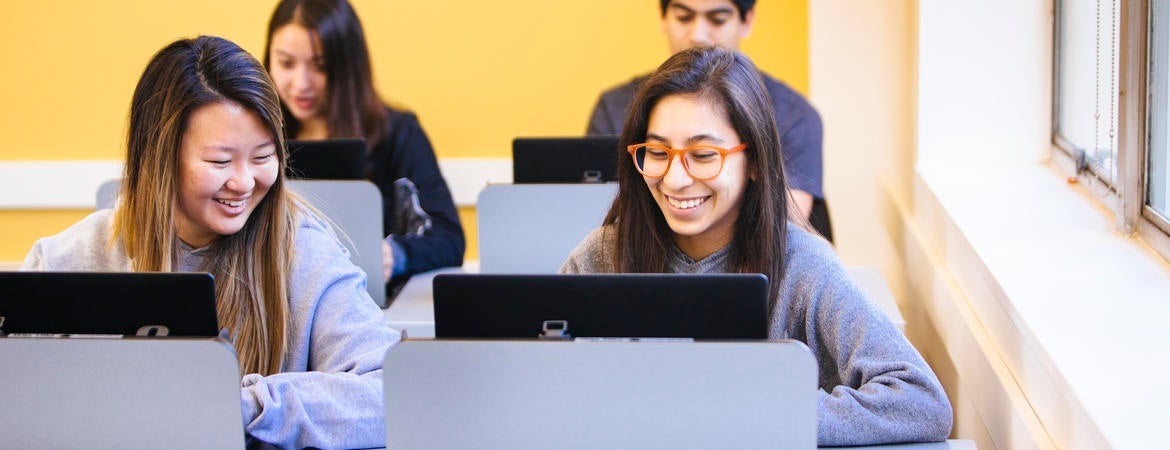
A new data science degree will increase the numbers of women and underrepresented groups in high-tech fields.
The University of California, Riverside, has received a $400,000 gift from the Center for Advancing Women in Technology, or CAWIT, to support a new data science degree to increase the numbers of women and underrepresented groups in high-tech fields. The new program at UC Riverside is one of several at different universities funded by CAWIT’s Technology Pathways Initiative, or TPI.
The new interdisciplinary computing degree program will be implemented in the Marlan and Rosemary Bourns College of Engineering and the College of Natural & Agricultural Sciences, or CNAS.
“We are excited to join TPI with the goal of advancing diversity in computing through undergraduate studies in data science,” said Sharon L. Walker, interim dean of Bourns.
“UC Riverside’s new degree program demonstrates a strong commitment to prepare students for 21st century jobs by equipping them with computing knowledge and skills,” said Belle Wei, CAWIT chairwoman and the Carolyn Guidry Chair of engineering education and innovative learning and former dean of the College of Engineering at San José State University.
The United States faces a workforce gap between demand for and supply of workers with computing and technology skills. The U.S. Bureau of Labor Statistics projects 1.4 million computer science jobs by 2020–with only 400,000 computing graduates available to fill them.
This workforce gap is exacerbated by a gender gap. Women represent roughly 58 percent of college graduates, but only 18 percent of graduates with bachelor’s degrees in computing.
TPI funds interdisciplinary degree programs that integrate computing and information technology into majors that already attract large numbers of women. Many study areas related to data science, such as astronomy, biology, and economics, historically enroll equal numbers of men and women.
“Through cross-campus collaboration, we will create new interdisciplinary degree programs that integrate curricula in computer science, statistics, and domain areas in which data science can be applied,” said Kathryn Uhrich, dean of the College of Natural and Agricultural Sciences.
An integral part of the data science program will be outreach activities aimed at establishing data science-related curricula, projects and activities in K-12 education, with particular emphasis on targeting women and underrepresented student populations.
The data science program offered as an intercollege major by Bourns and CNAS is modeled on the university’s existing neuroscience major. Program organizers intend to have a “soft rollout” in fall 2018 with a fully operational degree in fall 2019. They expect about 50 new students to enroll in the program each year.
A faculty committee headed by Vassilis J. Tsotras (Computer Science and Engineering) will run the data science program. Other committee members include Daniel Jeske, Wenxiu Ma, and Shuheng Zhou (Statistics); Evangelos E. Papalexakis and Christian Shelton (Computer Science and Engineering).
TPI universities include Cal Poly San Luis Obispo, San Francisco State University, San José State University, UC Berkeley, UC Davis, and UC Riverside. TPI university pilot programs are supported by a $3 Million gift from TPI industry partners Intel Corporation, KLA-Tencor Foundation, and Salesforce, which provide mentoring and internships for participating students.
“Our partnership with CAWIT provides UC Riverside faculty with opportunities to develop and pilot interdisciplinary computing degree programs more quickly with initial funding support from corporate sponsors,” said Peter Hayashida, vice chancellor for University Advancement. “Together, we will open doors to new and highly relevant learning opportunities for more students, including those who have traditionally been underrepresented in engineering and the sciences.”



